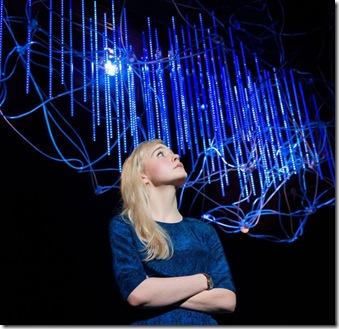The Hard Problem: Challenging, Amusing and Intelligent but not Stoppard at his best.
Photo by John Persson . Olivia Vinall as Hilary.
As patrons shuffled out of the Cineplex theatre in Ottawa Thursday evening, after th NTL showing of The Hard Problem, the new play by Tom Stoppard, his first play since 2006 (Rock’n Roll) and the first for the National Theatre since his Trilogy The Coast of Utopia in 2002, the general impression seemed to be exactly what was mentioned in the title of Michael Billington’s review , published in “the Guardian” January 29: “the work occasionally suffers from information overload”, something which would not be difficult to document, especially if one had the text on hand . Clearly without the text, most of the details of the arguments are difficult to retain.
As well, the vocabulary is always taken from areas of specialisation as they are bantered back and forth by these scientists who are all specialists in their own fields: cognitive science which is questioned as a science, evolutionary or behavioural biology; genetics, analysis of the brain are linked to science as opposed to the study of the mind. The study of the mind is not a science whereas the study of the brain is linked to human biology and is a science. If this is so, how does one experiment on human consciousness? How does one analyse the “mind”.which has no material substance? Later the question arises related to the fact that materialsm is a philosophy, does that mean it can be put in the same category as the belief in God? Is that scientific? And the ideas roll round in the laboratory and board rooms of the KROHL institute of Brain Science where all these nine characters find themselves, employees or students in this research institute, where they are trying to define human consciousness.
